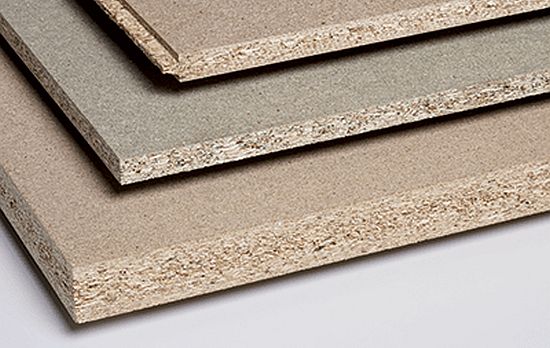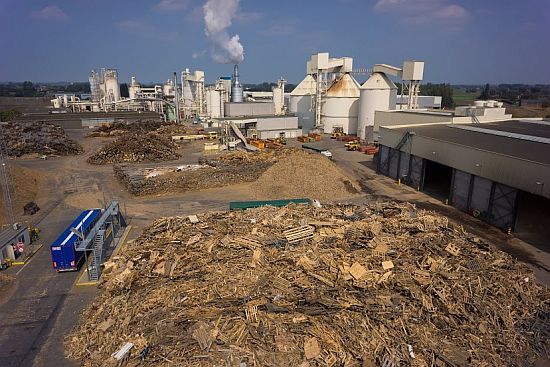Unilin
Unilin uses waste wood as a raw material for chipboard
"We allow our precious wood to be utilised over several life cycles"
Tino Mulle, sustainability manager at the Unilin group
|
Unilin is one of Europe's largest chipboard manufacturers. The company was founded in 1960 by West-Flemish flax farmers. These days, its fibreboard is increasingly made from recycled wood. "An economic choice with great ecological benefits."
Originally, Unilin made their chipboard using shives, the hollow woody part of the flax plant. "However, the demand for chipboard grew so fast that the company was required to turn to wood as early as the 1960s," explains Tino Mulle, sustainability manager at the Unilin Group. "Their main resource became wood from forest-thinning cycles and leftovers from the timber industry, such as irregular shapes unsuited to furniture production. Later, we also began using leftover wood from the packaging industry and building sector. We eventually made the transition to post-consumer wood. This is wood that has already completed one life cycle and has ended up in the waste circuit." The search for leftovers Unilin conducts its search for raw materials over a radius of between 200 and 300 kilometres, looking in council tips, at demolition firms and in industries with access to such leftovers. "It was an economic necessity to use waste wood," explains Mulle. "As a product, chipboard has just a small profit margin. Our competitors are located close to large sawmills or forest managers, while we were required to take delivery of waste wood from a great distance. The transport costs hit the roof. That is why we began focusing on recycling waste wood as much as possible. This helps us keep our chipboard affordable and sustainable." Chipboard is recycled too Unilin's chipboard is made of over 75 per cent recycled wood. "We aim to increase this percentage to the full 100 per cent," according to Mulle. "After all, there also major ecological benefits in using waste wood. We require less fresh wood, avoid the massive accumulation of waste and find our resources locally. Less transport is needed, thus reducing CO2 emissions, creating fewer dust particles and less traffic. This also benefits road safety. We can recycle used chipboard, although there is a limit. Indeed, endless recycling eventually creates chips that are too small, although we keep managing to extend the boundaries."
Well sorted The use of post-consumer wood also has its disadvantages: its quality is far more diverse and it contains many impurities. "It is important to separate the wood from other materials, such as glass, metal, rubber, plastic and rubble. We have needed to invest heavily in machines for cleaning and sorting. Meanwhile, we have the latest technology, allowing us to turn a very diverse mix of recycled wood into chipboard that is still of a high quality." Green heat Unilin also makes the most of non-recyclable wood and uses it to generate heat and electricity. "Wood dust and other wood particles that we are unable to recycle into chipboard are burned as fuel. The heat released is used in our production processes. Wood is much better for generating heat than electricity: the return is much greater. 60 per cent of our total energy consumption comes from renewable sources. By using our own waste flows internally and maximising our focus on green energy, Unilin can contribute to the circular economy of the future." |
|
SUSTAINABILITY BENEFIT IN FIGURES ► Unilin's chipboard consists of 75 per cent recycled wood. ► Unilin processes over 700,000 tonnes of post-consumer wood each year. ► 60 per cent of the energy consumed by Unilin comes from renewable sources. |
||||
|
BENEFITS ► Use of recycled wood in chipboard → fewer raw materials, less waste. ► Non-recyclable waste wood is converted into heat → energy-efficient production process. ► Local supply → less transport (costs), fewer CO2 emissions, fewer dust particles, less traffic and safer roads. |
||||
Sectors Construction ›


